Every summer of my childhood we would leave the derelict dairy farm on which we lived—our little five acres of tall prairie grass set down between low hills so covered with pasture land and scrubby woods we couldn’t even see our nearest neighbor a quarter mile away and lived in an isolation broken only by gangs of yapping coyotes, grazing cattle, and occasional visits by a fox, rabbit, or racoon—and spent a week or more on a twenty-foot-by-twenty-foot dirt and gravel camping spot where we were surrounded by other families, partying teenagers, and troops of Cub Scouts. On these camping trips, we shared a stone and cement bathroom with hundreds of other campers. In the afternoons, we jockeyed for parking spots and beach chair space at the best swimming holes, and in the evenings we drifted off to sleep to the mixed melodies of various campers’ portable stereos. We called this “getting back to nature.”
I absolutely loved these family camping trips to the Chickasaw National Recreation Area near Sulphur, OK. I loved hiking up old Bromide Hill, where one could get a grand view of the entire town. I loved drinking from the smelly and supposedly medicinal mineral springs from which the town derived its name. I loved visiting the nature center, where we could stare with awe and fear into the cold eyes of a diamondback rattler in a glass box. Above all, I loved swimming in the bone-chilling creeks fed by the cold springs. The park is beautiful and leafy. It is also full of history, from its first native settlers to the various stone structures and improvements erected on the premises by the Civilian Conservation Core during the hardest days of the Great Depression. It seems odd, however, now that I think about it, that we considered a crowded and largely CCC-engineered park to be somehow more “natural” than our fairly isolated home in the country.
In Oklahoma, the nature many of us live so close to is a different thing from the concept of “nature” we have internalized from books and movies. Nature means the wilderness. It means mountains and dense forest. It means national parks. It is something that is elsewhere. In middle school, we read about nature in Jack London’s Call of the Wild and in the poems of Wordsworth. We discussed the literary theme of man vs. nature, but we did not consider that any such story could take place in Chandler, OK. As a boy, I was enthralled with the idea of living close to nature as portrayed in the most cherished book of my young life, Jean Craighead George’s My Side of the Mountain. I dreamed of getting “back to nature” and living in the woods like the novel’s protagonist, Sam Gribley. Nature featured sometimes also in the westerns my father and grandfathers watched, untouched expanses of western canyons and rocky mountain ranges. All these images were of a wild very different from the natural landscape around us. Nature was a thing to visit, either in imagination or for recreation. What we lived in was just the country.
Yet, our lives in rural Oklahoma are in many ways intertwined with the natural world. Quite a few of us still make a living from what the earth can produce, primarily in the form of grass-fed cattle. Where I live, even in town, we can see pastureland and grazing animals from almost any upper-floor window. We are thus “close to nature” in the way that human beings have been throughout our history on this planet, not as tourists in an untouched landscape but as collaborators with the natural processes that feed us. Some people here still keep the kind of large garden my grandparents grew, with corn, grapes, blackberries, strawberries, pumpkins, carrots, potatoes, onions, cauliflower, zucchini, squash, and row upon row of tomatoes. Aren’t we working alongside nature when we raise a steer to feed ourselves and others? Aren’t we close to nature when we sit on the porch husking sweet corn in the evening heat or when we slip a hand beneath a ripening tomato to judge its weight on the vine?
I have written many poems about this agricultural landscape over the course of my writing life. Yet, I’ve never been called a “nature poet.” A nature poet is someone like Gary Snyder or my friend, Paul Willis—someone who writes about mountain views and wilderness hikes. A nature poet sings of untouched wilderness. My poems are simply rural. Come to think of it, I’m not sure I have even heard Frost described as a “nature poet” either. How is it that the poet of nature and the poet of the farm have become distinct literary categories?
Another frequent topic in my poetry, as in my conversation, is the weather, and is the weather not also a part of nature? An Oklahoman’s life, rural or urban, is lived in close contact with the weather. We spend all spring and most of the summer in the state of mild alarm our weathermen call “staying weather aware,” just in case a tornado or two shows up. Many of my earliest memories are of hunkering down in a damp storm cellar waiting for the roaring winds to pass over. Springs can be so wet the roads wash out, but then we won’t get rain again until December. “Softball-sized hail” is a phrase we frequently hear on local television. We are almost always in a drought or a flood. We all know the difference between a “tornado watch” and a “tornado warning.” We go from a bone-chilling winter wind to one-hundred humid degrees seemingly overnight. When we do have a rare stretch of pleasant weather, we all comment on how it can’t last. We are constantly aware of what nature is doing at the atmospheric level.
Yet we don’t think of any of this as “nature.” Nature remains something far away, something reached beyond the endless stretches of grass and huddled bunches of trees that surround our homes. I suspect the reasons for this disconnect can be found in the way nature is discussed in our schools, our pop culture, and our politics. I’ve already mentioned the kinds of books and movies that shape our sense of nature as something one “gets back to,” not something we all already live in. The people who talk to us about land use and farm management are as close as the county extension office; the people who talk to us about nature all live in Hollywood or in REI and Subaru advertisements.
When we debate ecology or “saving the earth,” we are generally talking about caring for national parks or preserving pristine ocean, not how we use our pastureland. Debates about land use do, of course, happen, but they are debates about pollution and the climate, or about agricultural policy, not, generally, debates about nature. If the word “natural” is used, it is sure to be followed by the word “resource,” and taking advantage of a natural resource is a conceptually distinct thing from getting back to nature. When a proposed wind farm comes up—a current, hotly debated subject in my home county—we argue about the impact on the neighbors, not on nature itself.
I think this tendency not to conceptualize the landscape around us as natural matters for two reasons. The first reason is that understanding our own habitat as natural may encourage us to think more carefully about how we treat it. When nature is something that can be preserved only elsewhere, in Arkansas, Colorado, California, or Alaska, then we pay less attention to how we treat the land on which we actually live. We tell ourselves it’s not as if we are spoiling anything truly natural. We tend to think of any land marked by humanity as already impure, and thus we don’t worry much about further damage. Conceptually there is only “unspoiled wilderness” and the land on which we actually live and work. We romantically yearn to preserve the “pristine wilderness,” and forget about the prairie we walk and drive over. We fall out of balance: our concepts of conservation become purist and ruthlessly anti-human, or we give up on nature altogether.
The deeper problem behind this disregard is that, without a sense of being in nature, we fail to attach properly to the places we live.
The deeper problem behind this disregard is that, without a sense of being in nature, we fail to attach properly to the places we live. Perhaps we could even say that a sense of nature is essential to a sense of place. We were placed by God in a garden. We are formed to orient ourselves to the natural world, to be situated within what is given by God through nature. When a sense of nature is erased from a place, the place itself conceptually disappears and becomes merely “flyover country.” The middle of the country becomes “the middle of nowhere,” as if it were not a place in the natural world. A place that is conceptually nowhere is negligible, disposable, abandonable. The loss of a sense of nature breeds a wasteland, be it a post-industrial dump, a factory-farmed expanse, or just a rapidly emptying small town. We need a sense of nature to sustain a natural affection for the places we live, the places in which we are rooted. To be truly in a place, we need to feel the earth breathe.
Just as the affection for wilderness returns to us through hiking and camping, the affection for the nature we live in returns through activities like backyard birdwatching and gardening. Our affection comes into being through the repeated observation of particular trees, and of particular ponds, creeks, lakes, or rivers, seen not as artificial impositions on the land but as the natural world which hosts us and with which we collaborate. Slowly we can learn to say to ourselves, I am here, and here is a place in the natural world.
I still enjoy a good visit to Sulphur and the Chickasaw National Recreation Area. It is a fun place to take the family, and it does have much to offer in natural beauty, crafted in collaboration with the CCC. I try, however, not to think of visits there as “getting back to nature.” I try, instead, to stay with nature wherever I am, especially when I am home.
Image via Wikimedia

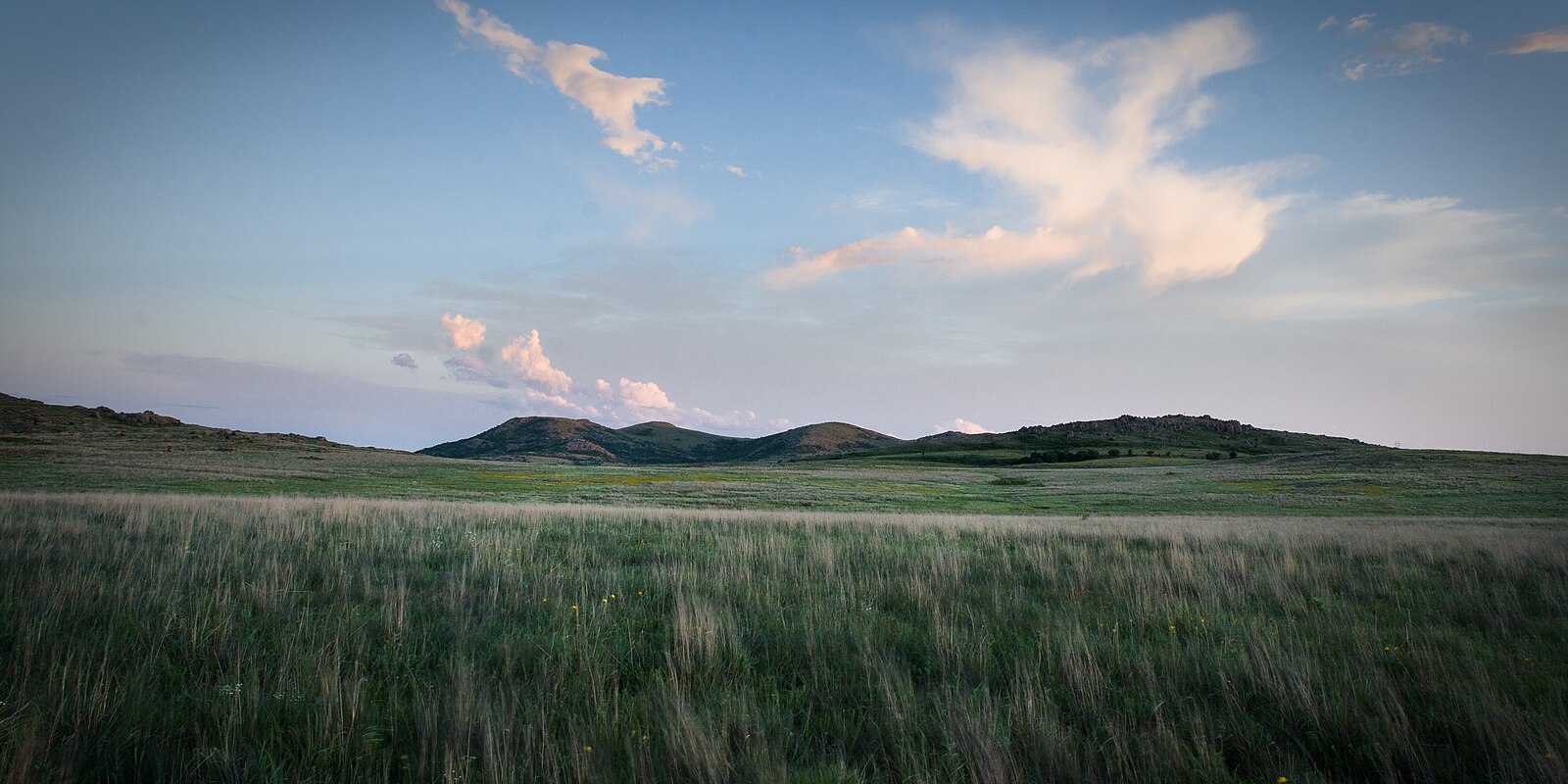
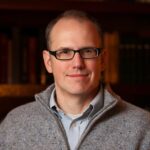
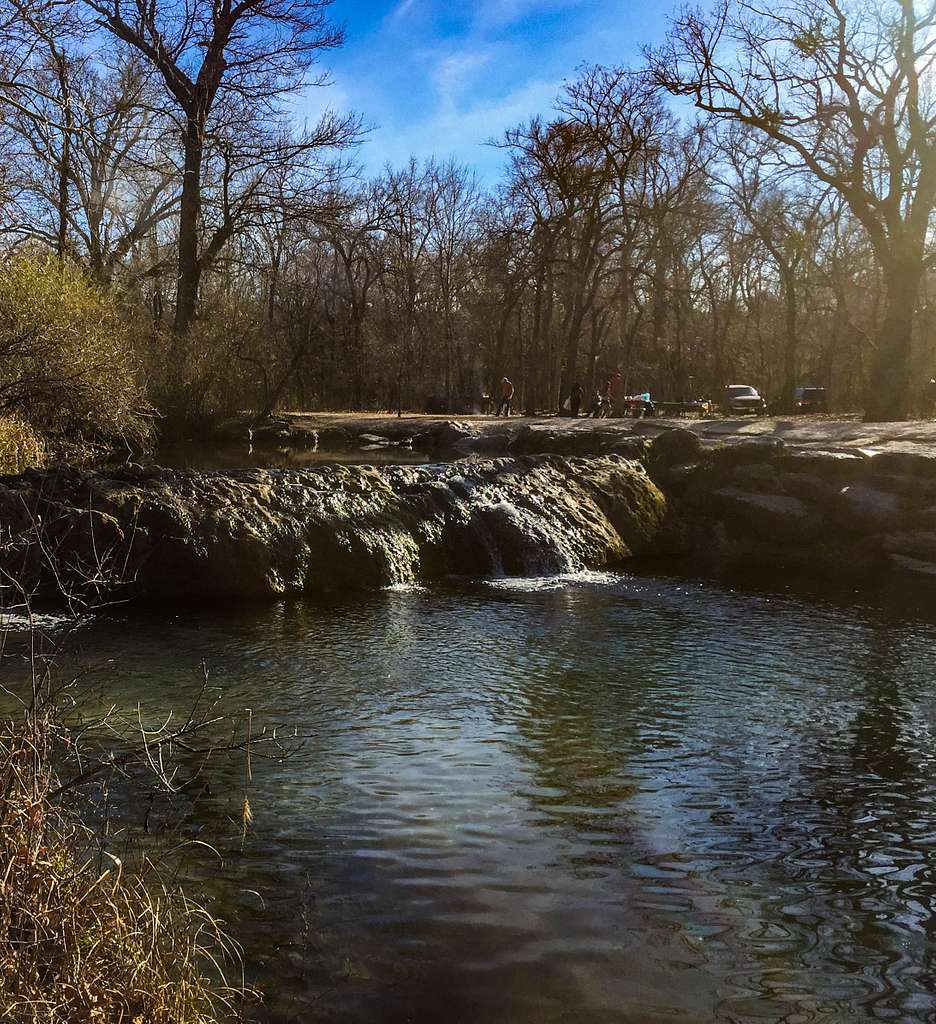

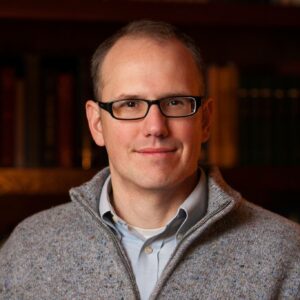
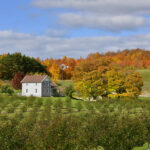
1 comment
Scott LaMascus
Ben, I love this and hope you explore it more, too. An acre is as natural as 1,000 acres as a city apartment, really. Oxygen. H2O. Sunlight in the kitchen window. You’re onto a conceptual fault line that needs defining! Thank you.– I’ve been thinking about “performative rurality” — a phrase I swiped aside quickly in my social-media duties to support a chapbook this spring. I’ll admit the phrase has niggled into my brain like stick-tights that get in my socks when I launch off to find a cow and calf in the top 40. Right there in my brain next to folks’ surprise when I am pushed to explain what I _do_in early retirement from being a humanities professor. Cattle? Helping Mom on the family ranch? Actually, If anything about my life were a performance, it was the forty years of career, polishing off the jagged edges of small town life, subsistence hunting and fishing, raising livestock, and spending summers on the farms my parents grew up on. Trying to at least pass for a polished person, as it were. It’s the years when my boots got pushed to the back of my closet in pursuit of our children’s education and two careers needed to get there. — Now it’s terrapin season on the rural highways I travel from my suburban house to our rural family home far from a decent cell signal or wi-fi router. Mom needs me and my sister now more than ever now Dad’s gone. Wood to be chopped. Calves tagged and bulls cut. Brush-hogging. Yes, I’m performing my rurality, as the blogger said. All the way back several nights most weeks to sleep in the suburbs and all the way to my peaceful grave.
Comments are closed.